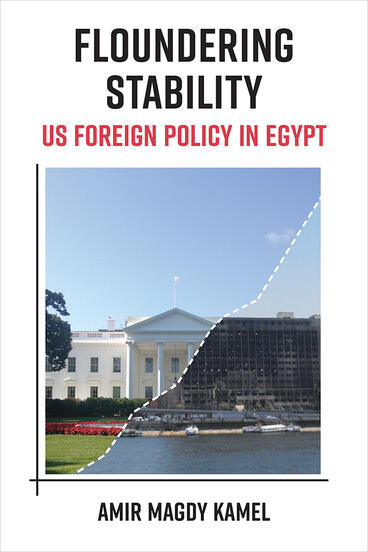Floundering Stability
US Foreign Policy in Egypt
A cautionary tale
Description
The US commitment to stability—both domestically and abroad—has been a consistent feature in the way Washington, DC carries out international relations. This commitment is complimented by the increased overlap between the economic and political spheres in international affairs. Consequently, this US approach to foreign interaction is informed by an assumption that foreign policy tools can influence global stability for the better. In order to investigate this assumption, this book details the foundations of what Amir Magdy Kamel refers to as the US Stability Policy—how it evolved over time and how it was implemented in Egypt. He finds that domestic and global forces were left unaccounted for by the Stability Policy, ultimately leading to a failure to achieve the self-stated stability goals.
Kamel’s analysis is informed through a unique mixed-method approach that sheds light on how and why this policy fared so poorly under Mubarak’s Egypt. He develops and tests a unique and particular way of examining the Stability Policy and presents a framework for future work to replicate and build on in the quest to understand other state-on-state relationships and the effectiveness of other foreign economic policies in achieving stability goals. Floundering Stability reflects on what Kamel’s findings mean for the relationship between the US and Egypt, as well as specific US foreign policy suggestions on how the same mistakes can be avoided in the future.
Amir Magdy Kamel is Associate Professor/Senior Lecturer in the School of Security Studies and Fellow in the Institute of Middle Eastern Studies, both at King’s College London.
Reviews
“This book significantly furthers our understanding of three important areas of inquiry: (1) the nature of the US-Egyptian relationship; (2) past US administrations’ approaches to foreign economic policies and how these relate to foreign policies aimed at promoting stability; and (3) the relationship between economic interactions between states/markets and domestic political stability within these states. Kamel’s contributions to these discussions are invaluable.”
—Imad El-Anis, Nottingham Trent University
- Imad El-Anis
“Amir Kamel provides a conceptually and empirically rich book that charts the ups and downs of the US-Egyptian relationship. This book is impressive not only in how it uses data but in how it places this relationship in its regional as well as bilateral context. Kamel has written a timely and important book that makes a valuable contribution to the scholarship on the political economy of the modern Middle East.”
- Rory Miller
—Rory Miller, Georgetown University in Qatar

